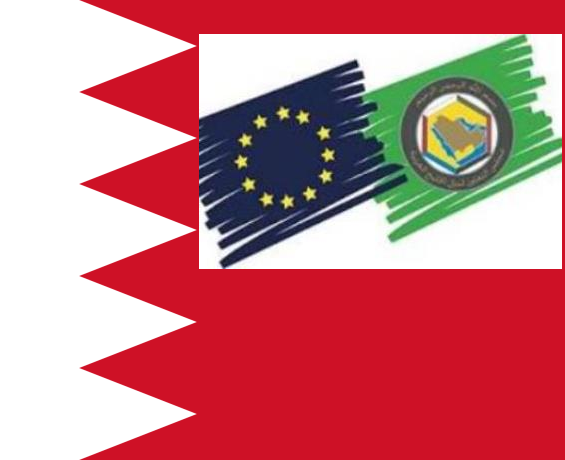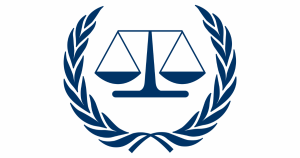18 July 2016
With the 25th European Union-Gulf Cooperation Council (EU-GCC) Ministerial meeting set to take place in Brussels on 18 July 2016, we, the undersigned organisations, call on Ms Federica Mogherini, High Representative of the European Union for Foreign Affairs and Security Policy, as well as the ministers of EU member states, to raise a number of pressing human rights issues with the representatives of the GCC countries. In particular, we urge High Representative Mogherini and the EU ministers to call for an end to the Bahraini government’s intensified suppression of civil society and political opposition. We further urge the ministers to raise their concerns following the UN Secretary General’s decision to remove the Saudi-led coalition fighting in Yemen from a UN register of children’s rights violators, after the regime and its coalition partners threatened to cut off crucial funding.
In recent weeks, the Government of Bahrain has taken unprecedented action to suppress peaceful dissent, targeting activists, lawyers, journalists, human rights defenders, and opposition figures with arbitrary detention, travel bans, forced exile, and denaturalisation. The authorities have specifically targeted the president of the Bahrain Centre for Human Rights (BCHR), Nabeel Rajab, who is currently imprisoned on charges related to online expression, as well as the chief opposition group, Al-Wefaq National Islamic Society, which is currently suspended and facing dissolution. Collectively, these measures aim to silence any form of independent free expression in Bahrain, imposing further constraints on what little civil society and political space remains.
Simultaneously, the Bahraini authorities have continued to exploit broad anti-terror and anti-cybercrime legislation in order to criminalize dissent and misrepresent Bahrain’s pro-democracy movement as a security threat. The government’s approach works to deepen sectarian divisions and further marginalize the country’s majority Shia population, potentially jeopardizing the stability of the entire Gulf region.
The Government of Saudi Arabia, meanwhile, has supported these counterproductive tactics both in Bahrain and at home, all the while leading an intervention in Yemen’s civil war that has left thousands of civilians dead. In the last several years, Saudi Arabia has demonstrated a patent disregard for international norms, continuously refusing to substantively reform what has become an increasingly repressive domestic criminal justice system. Like Bahrain, Saudi authorities have also recently intensified their efforts to suppress all forms of dissent, using equally expansive anti-terror legislation to imprison activists and disband civil society organizations, such as the Saudi Association for Civil and Political Rights (ACPRA), whose entire founding membership has faced incarceration. This trend is made all the more troubling by the kingdom’s skyrocketing capital punishment rates, with the government already on pace to double last year’s 158 total executions. Despite all this, Saudi Arabia has sought to play a larger role in the international human rights community – even as it threatened to revoke funding for key humanitarian programs after the UN placed the kingdom on a ‘blacklist’ of children’s rights violators due to its indiscriminate air campaign in Yemen.
In order to live up to the EU’s commitment to “place human rights at the centre of its relations with all third countries, including its strategic partners” (EU Strategic Framework on Democracy and Human Rights), High Representative Mogherini and the EU ministers must explicitly demand to their GCC counterparts that the evaluation of the human rights situation in the two blocks’ Member States be the first item on the agenda.
After the European Parliament clearly called for the release of imprisoned human rights defenders and political opposition leaders in Bahrain in its 7 July 2016 resolution, the EU adopted an urgency resolution condemning the imminent execution of Mr. al-Nimr, and the European External Action Service publicly raised its concerns over the recent escalation of repression in Bahrain, High Representative Mogherini and the EU Ministers must make it clear that the good cooperation between the EU and the GCC depends on respect of human rights by their Member States. Our organisations expect that silence concerning human rights violations in Member States of the regional blocks will stop being the rule in EU-GCC meetings. The EU-GCC must become a forum where all issues of importance for the future of the relations are tackled, which means that it should allow for explicit and frank discussion of the human rights situation in the EU and the GCC Member States. Ministers must agree on a clear set of commitments to end major human rights violations or the EU-GCC will become a forum where governments decide against the interests and rights of their peoples.
Signatories:
- Americans for Democracy & Human Rights in Bahrain (ADHRB)
- Bahrain Institute for Rights & Democracy (BIRD)
- Center for Inquiry
- CIVICUS
- English PEN
- European – Bahraini Organisation for Human Rights (EBOHR)
- European Centre for Democracy & Human Rights (ECDHR)
- European Saudi Organisation for Human Rights (ESOHR)
- Gulf Centre for Human Rights (GCHR)
- International Federation for Human Rights (FIDH)
- International Humanists and Ethical Union
- Justice Human Rights Organization (JHRO)
- Khiam Rehabilitation Center for Victims of Torture
- Lawyers’ Rights Watch Canada
- Maharat Foundation
- No Peace Without Justice
- Reprieve




